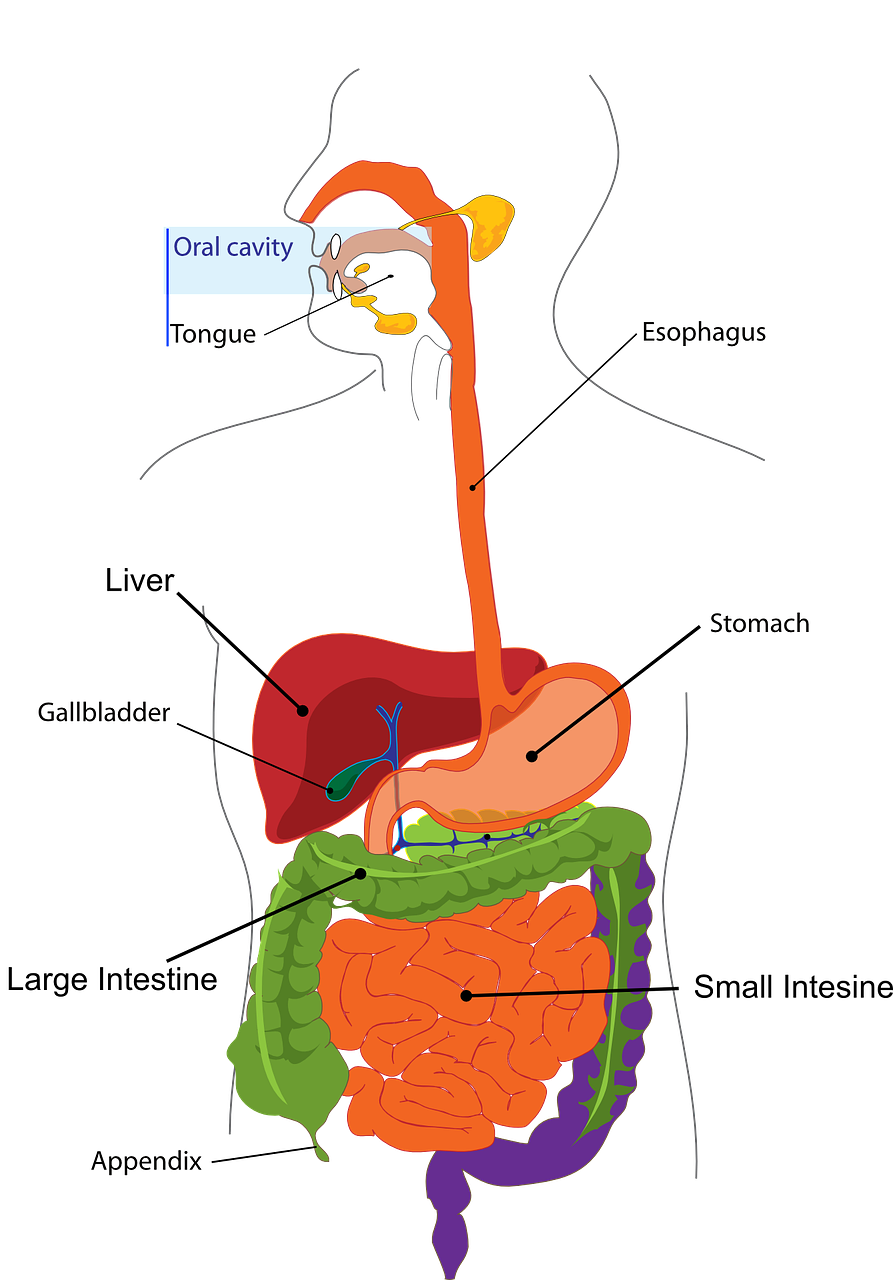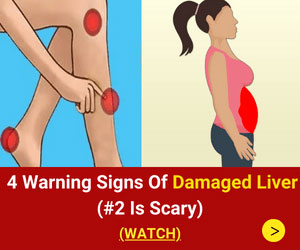Facts About the Liver and Weight Gain

Picture of the Liver in the Body
“The liver is just as vital an organ as the heart, but people often fail to appreciate the importance of keeping it healthy.” *
The liver is the largest organ in your body, it can be found just under your ribs on the right-hand side of your body. At any given time, it holds approx. 1 pint of your blood, and it is responsible for around 500 different functions.
The liver has 2 main lobes and within these lots of smaller lobes. It is made up of special cells called hepatocytes which are responsible for absorbing nutrients and removing harmful substances from the blood. These special cells replace themselves every 5 months or so.
NOTE: Before reading this article, please note that I am not a medical professional. All the information on this website comes from readily available online resources and as such the information given below is just a resume of what I have personally found to be helpful. Please see the disclaimer at the bottom of the page for more info.
Your Liver Facts:
The liver processes digested food from the intestines.
Controls the levels of fats, amino acids and glucose in the blood.
Helps to fight infections. If your liver is damaged, you may find it difficult to fight off infections.
Clears the blood.
Neutralizes drugs and toxins.
Manufactures bile – which breaks down fats and carries waste away.
Acts as a storage facility for iron, vitamins and other essential chemicals.
Breaks down food to turn it into energy. Your liver helps you to produce energy quickly when you need it.
Manufactures, breaks down and regulates hormones
Makes the enzymes and proteins that are responsible for most chemical reactions in the body.
Take This is My Liver Healthy Quiz
https://britishlivertrust.org.uk/at-risk-screener/
Is My Liver Making Me Fat?
Modern life places many strains on the liver. Walking along a street laden with car fumes, going to the hairdresser who uses products full of chemicals, eating a burger, having a drink out with friends, taking pharmaceutical medicines, – all these activities produce toxins that our liver needs to neutralise. It’s no wonder that sometimes our liver struggles to cope.
Signs Your Liver is Struggling
If your liver is having to work too hard it becomes overburdened and does not work efficiently. It becomes unable to process nutrients and fats. When this happens, your metabolism slows down and you may begin to experience weight gain, lethargy and potentially other more serious health issues such as:
Non-Alcoholic Fatty Liver Disease (NAFLD) is a disease caused by the build-up of fats stored in the liver. It is known that some of these excess fats come from dietary sources both fatty foods and sugars/carbohydrates. (Think chocolate cake!)
Eating excess calories causes fat to build up in the liver because it cannot process and break down these fats as it should.
This may create a vicious circle whereby we consume food because we are lacking energy, but we are lacking energy because the liver is unable to process all the food that we eat.
Toxins and stress in our environment and in the food that we eat also affect our liver and can contribute to liver disease.
Fatty Liver is often not detected or diagnosed until the later stages of its progression.
Whilst many people live with NAFLD without even knowing they’ve got it, it can progress and lead on to much more serious issues such as cirrhosis, diabetes, heart attacks, strokes and cancer.
Symptoms of early onset fatty liver are minimal, and it usually goes undetected, but it is thought to affect at least 25% of our westernised populations.
Later symptoms may include:
- Skin and eyes that appear yellowish (jaundice)
- Abdominal pain and swelling.
- Swelling in the legs and ankles.
- Itchy skin.
- Dark urine colour.
- Pale stool color.
- Chronic fatigue.
- Nausea, vomiting and weight loss.
The main risk factors for getting NAFLD are obesity and diabetes. However, when it comes to obesity it may be difficult to tell whether the obesity caused the fatty liver or vice versa.
Metabolic syndrome is a combination of symptoms that put you at high risk of serious illness.
These symptoms include:
- Being Overweight
- Storing fat around the waist
- High levels of fat in the blood
- Insulin resistance
- High Blood Pressure
How to Restore Your Liver
Your body is designed to work best when it is fed with natural unprocessed foods. The chemical laden foods that our diets are so full of put an enormous toxic burden on our liver. In turn that liver rewards us with more weight gain.
The consumer driven approach to weight loss would have us believe that we can eat the same amount of food (so that we don’t feel hungry) but just reduce the calories in those foods. However, the foods produced by the weight loss industry tend to be laden with chemicals and toxins that can only further the problems that our liver is experiencing. Adding low-calorie foods to our diet is just not going to help.
The Best Things You Can Do For Your Liver.
Lose weight slowly – losing weight too fast has been found to cause more liver damage.
Try Intermittent fasting, it has been shown to improve liver health.
Eat good, natural and preferably organic foods – to reduce the toxic overload.
Eat your greens. Cruciferous vegetables help your body to produce glutathione – an important enzyme for many of the liver’s detoxification processes.
Eat a moderate amount of fats and proteins because they contain nutrients essential to liver health.
Avoid low fat diets because they reduce the production of bile. Bile is needed for liver detoxification.
Increase your exercise routine.
Get out into the sunshine more.
Reduce your toxic overload – toxins are in the environment and in the foods we eat.
Avoid alcohol.
Avoid processed foods (especially those containing trans fats), and weight loss foods that have a long list of chemical ingredients.
Avoid Fructose (the added kind) found in sweet drinks, colas, soda, fruit juices, sauces and dressings.
Drink more (filtered) water. Water helps the liver remove toxins. Add a couple of slices of fresh lemon to it to help even more.
Eat food known to help the liver such as:
- Garlic
- Broccoli
- Coffee including decaf coffee – but not on an empty stomach – make water your first drink of the day.
- Green Tea
- Omega 3 – found in salmon sardines walnuts and flaxseed.
Herbs for liver detoxification
Support your liver with vitamins, minerals and herbs. (Make sure you take the correct amount and do your research/due diligence/speak to your medical professional before adding these into your regime.)
Such as but not limited to:
- Vitamin B12
- Folic Acid
- Milk Thistle – milk thistle tea can be made from dried seeds or leaves available to buy from whole food stores.
- Artichoke Leaf Extract
- Choline
- Turmeric
Or take a combined liver health formula that includes all the nutrients helpful to heal the liver.
More Articles:
How to Use Your Free Weight Loss Journal
What is a Weight Loss Journal
Weight Loss Journal Ideas
Best Free Apps for Weight Loss Journaling
Are Calories Bad
Bad Sleeping Habits
Funny Weight Loss Memes
Return to Home Page:
References
* https://britishlivertrust.org.uk/information-and-support/liver-health-2/abouttheliver/ accessed 15th January 2023
PLEASE NOTE
All content and media on the My Weight Loss Journal website is created and published online for informational purposes only. It is not intended to be a substitute for professional medical advice and should not be relied on as health or personal advice.
Always seek the guidance of your doctor or other qualified health professional with any questions you may have regarding your health or a medical condition. Never disregard the advice of a medical professional, or delay in seeking it because of something you have read on this website.
If you choose to rely on any information provided by My Weight Loss Journal, you do so solely at your own risk.
Links to other websites or educational material are followed at your own risk. Under no circumstances is My Weight Loss Journal responsible for the claims of third party websites, educational providers or their products.
